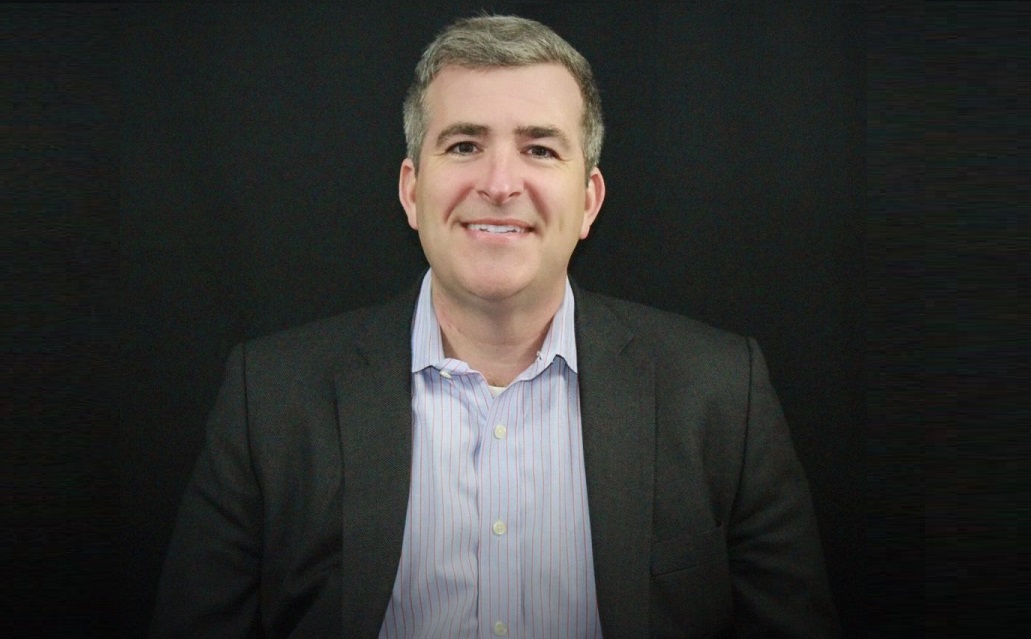Podcast: Play in new window | Download
Subscribe: RSS
Kevin Quigg is the Chief Strategist at Exponential ETFs. He is involved with the American Customer Satisfaction Index. Through that experience, he has gleaned some interesting insights about what clients of financial advisors value and want most. Kevin has been in the wealth management industry for 23 years in a variety of capacities working with financial advisors to help them build better practices. He is a frequent guest in many media outlets including CNN, CNBC, Wall Street Journal, and Yahoo Finance among others, and is spearheading the effort to help investors to access the previously unexploited investment factor of customer satisfaction.
Takeaway Quote:
Show Timeline:
1:20 Kevin’s background and his involvement with the American Customer Satisfaction Index
Why customer satisfaction is his passion
3:32 How customer satisfaction is used as an investment metric
And why this is now more relevant, across industries, than ever before
6:35 A recent example of an organization that experienced a disruptive event
How advisors’ relationships with clients can be the safeguard against these events
8:52 The main factors determining customer satisfaction
And how they affect the concept of elasticity
12:00 How these concepts apply to financial advisors specifically
The dynamic nature of the client experience as opposed to other industries, and what truly drives satisfaction
19:26 The key findings from the recent ACSI study
What separates the good from the excellent
24:43 Openness and consistency as two main differentiators
How to help clients feel more involved in their financial planning experience
28:07 Why client feedback is not important, but crucial
How advisors can start to build consistency around the feedback process
31:18 Addressing the referral gap
A strategy for helping clients overcome the concerns around referring
35:36 A major takeaway for advisors, to drive sustained business growth
Kevin’s advice for a long-term business vision
Links:
Websites: https://exponentialetfs.com/, http://www.theacsi.org
LinkedIn: https://www.linkedin.com/in/kquigg/
Twitter: https://twitter.com/kwquigg
Want more?
Stephen Wershing: www.TheClientDrivenPractice.com/checklistblog
Julie Littlechild: www.absoluteengagement.com/blog
Episode Transcript:
Julie Littlechild:
Welcome to another episode of Becoming Referable, the podcast that helps you be the kind of advisor people can’t stop talking about. I’m Julie Littlechild, and on this week’s show Steve and I speak with Kevin Quigg. Now, Kevin is the chief strategist for Exponential ETFs and he’s also a driving force behind the first financial advisor’s report from the American Customers Satisfaction Index. We talked to Kevin about the connection between customer satisfaction and investment performance, which was a really fascinating conversation. But then we did a deep dive into the financial advisor research. We asked him about the new research, asked him about the trends that he’s seeing related to customer satisfaction with advisors, and then we looked at what all of that means for your business going forward. He told us which elements of client service are really table stakes for clients and which aspects of the client experience really set one advisor apart from another. And with that, let’s get straight to our conversation with Kevin.
Julie Littlechild:
Kevin, welcome. So happy to have you here today.
Steve Wershing:
Yeah, welcome Kevin.
Kevin Quigg:
Thank you both for having me. Pleasure to be here.
Julie Littlechild:
Originally when we were looking at talking to you, we wanted to make sure we talked about the results of this new study that has come out that looks at advisors and client satisfaction. But maybe before we just jump right into that we could start with a quick introduction to you, to your role at Exponential ETFs and I’d love it if you could also maybe connect the dots between all of that and this American Customer Satisfaction Index that we’re going to be talking about.
Kevin Quigg:
Sounds good. My background, I’ve been in finance for about 25 years. The last 18 I suppose in the ETF industry. Exponential ETFs, as the name obviously implies, is the exchange traded fund provider. Really myself and my business partner, Phil Bock, come from large institutions that have been in the ETF business for quite some time. I’ve had the opportunity to work with the financial advisors and the people that they serve. Really our goal with Exponential is to create an organization that’s more reflective, to your point, Julie, of customer satisfaction. An organization where we don’t just have the investment solutions, but we also back it up with some of the information education material that we really feel people enjoy. And as technology has overtaken the marketplace we’re able to provide.
With respect to ACSI, the American Customer Satisfaction Index, we actually have been partnered with them for about two and a half years. We are really the investment management arm for the American Customer Satisfaction Index. That organization was founded in the early nineties out of the University of Michigan by our firm’s founder, Claes Fornell. Really our passion is customer satisfaction. I think you hit upon it. Life is a people business. In finance we sort of tend to dwell on the numbers and the statistics and the things that are more readily available. But at the end of the day, particularly for financial advisors, they’re both artists as well as scientists. They need to understand the financial marketplace, but more importantly understand what makes their client satisfied. Because that, at the end of the day, is what leads to more business above and beyond returns and performance, which I think is surprising to some but not to others. We at ACSI and Exponential ETFs have really focused our time and effort in understanding what drives satisfaction, what makes people happy, what makes people more likely to buy a good or service from someone.
Julie Littlechild:
I think what’s so fascinating to me is being able to draw this connection between customer satisfaction and things like investment performance within an advisory business growth. Satisfaction is obviously something that people would say, “Of course, that’s a goal. Of course that’s what I want to achieve.” But the reality is sometimes we need to look at the direct correlation between that and the business. I was really interested to learn about how you guys use customer satisfaction as an investment metric. Can you tell us a little bit more about how that works and what the outcomes are?
Kevin Quigg:
Absolutely. I think you hit upon the main point. I think it’s intuitive to most people that obviously if your customers are satisfied relative to their other choices, that leads to a better business result. Amazon is probably the chief company that has been satisfaction driven. And rather than focusing again on those traditional financial metrics, they focus more on customer satisfaction. Now where the challenge lies is in quantifying that because the benefit of most traditional financial information is it’s readily available because it’s backwards looking. Priced earnings or how many goods or services you’ve sold or things like that, those all look backwards. Satisfaction, the reason that we find it to be a real effective measure of future financial performance, is because it’s forward looking. Rather than capture what people have done or what has happened in the past, what we try and do as an organization is really try and capture the current sentiments of consumers and really better understand. Obviously it’s a fairly complex process that delves into a lot of different areas. But what we want to find out is who are the companies that they’re most satisfied with because again, statistically speaking they themselves are more likely to use that company in the future.
This is really where I think it ties into your podcast. They’re also more likely to refer others to that business or service in the future. Again, as we start to enter the digital age and everybody has access to Twitter and Facebook and all these other forms of social media, how well or poorly you satisfy your customers goes viral. It has the means of getting into the marketplace in a way, frankly, that it hasn’t ever before. Where satisfaction traditionally, particularly the way that we quantify it, has been a leading indicator of financial results, it’s only gaining more power as social media becomes more prevalent in the world. I think we’ve seen that this week with Facebook has a data breach. Traditionally that would have been reported in the paper that afternoon. Might have had an effect on the markets over the ensuing days and weeks. But really it’s gone viral and it becomes immediate. Customer satisfaction and again, that data breach is a really fancy way of saying they breached their consumer confidence. They breached their customer satisfaction. All of a sudden, they went from a business where we provide a pretty good service for our customers so our main challenge is bringing in new customers, to one where all of a sudden, retaining existing customers because of poor satisfaction has become something that’s a real issue for them.







Leave A Comment